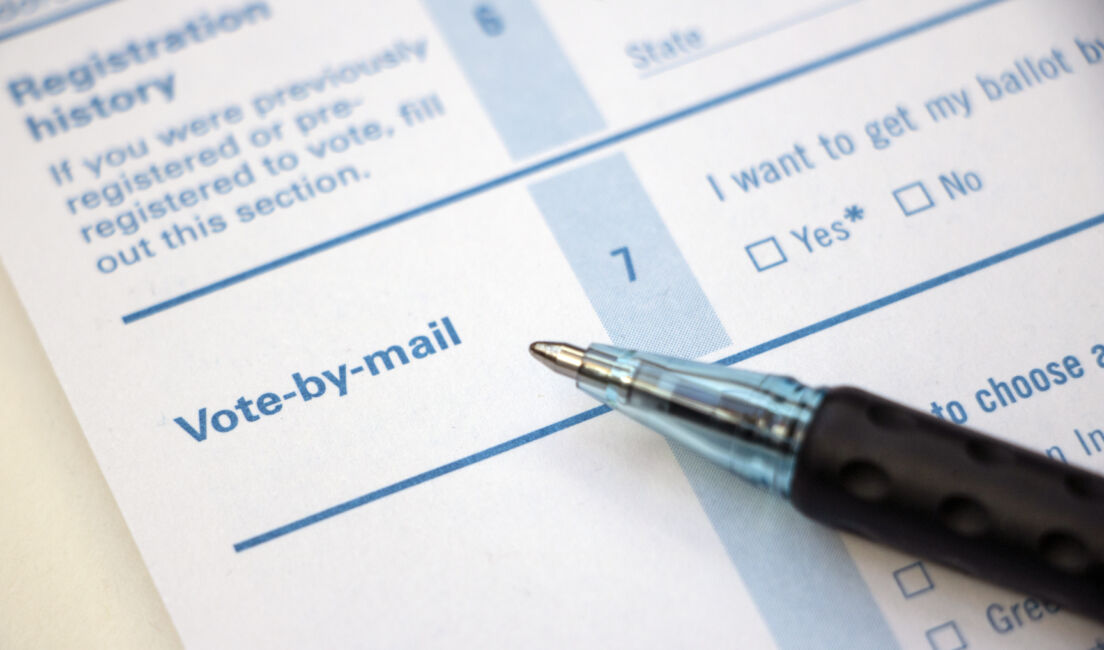America in One Room, confidence in democracy, and 5 links worth your time
Doing our part to preserve democracy

“Is American democracy working well?”
What would you say if someone asked you that question today? Would your answer be different than it was a year ago?
“America in One Room”
In January, when the presidential election seemed like it would be the biggest story of 2020, we hosted Professors Jim Fishkin and Larry Diamond of Stanford University for a discussion of their project, “America in One Room.” Conducted in late 2019, the experiment brought together 523 registered voters (from across the country and the ideological spectrum) for a weekend of discussion on public policy.
Participants were asked at the beginning of the weekend if they thought American democracy was “working well.” Remember, this was September of 2019, well before the COVID-19 crisis and everything else in 2020 that might prompt skepticism about the health of our institutions.
Only thirty percent of those surveyed before the event thought American democracy was working well. That’s a pretty low level of confidence.
Discussion increased confidence
For the next two days, participants met together in small groups to discuss specific proposals on immigration, taxes and the economy, health care, foreign policy, and the environment. Facilitators provided a detailed briefing book on policy proposals in these fields, but information was balanced between proposals from the left and right. Conversations were led by a moderator, but the direction of the discussion was up to the participants.
Some participants did change their opinions on policy, but that’s not the most interesting result. Following those two days of discussions with strangers (many of whom still disagreed politically), the number of respondents who believed American democracy was working well doubled.
Nothing had changed in terms of actual policy. Participants didn’t suddenly switch political affiliation or come to consensus on every subject. What changed was a respect for fellow participants and their opinions, regardless of ideology. Small group discussion demonstrated that, despite our differences, we can reason together and have respectful conversations about public policy, and those conversations can lead to progress.
Upcoming elections
The presidential election took a backseat to other headlines shortly after our event with Professors Fishkin and Diamond, but the election has returned to the news. Though we may be divided about much that is happening today, Republicans and Democrats in the United States share anxiety about the upcoming elections. Elsewhere in the world, elections are being delayed because of the pandemic and that, too, is a cause for concern.
All of this could be the beginning of more division and disagreement, or, we can take the lesson that “America in One Room” offers: whatever our differences, when we talk with and listen to one another, we can work together to move forward productively.
November is just three months away. We can fill that time with arguing and name-calling, or we can demand more of ourselves and our leaders. Our five links this week include information about the “American in One Room” experiment, the prospects for voting here and abroad, and the importance of peaceful elections.
Maybe these links can help you start your own small group discussions about public policy and increase your confidence in American democracy.
5 links worth your time
- “America in One Room,” Civil Squared Podcast – This recording of our live event with Professors Fishkin and Diamond covers the “America in One Room” experiment, their findings, and implications for policy issues. Although only 30 percent of participants believed that American democracy was “working well” at the beginning of the experiment, after talking with others (many of whom disagreed with them politically) for a weekend, that number doubled!
- Republicans, Democrats agree on one thing: Doubt about fair election, Reuters – We may be divided about many things in this country today, but we apparently agree on our anxiety about upcoming elections. We’re worried about fraud, foreign intervention, and voter suppression.
- The Coronavirus Is Delaying Elections Worldwide, Foreign Policy – At least 56 countries have delayed elections since the beginning of the COVID-19 crisis. Some have rescheduled elections and some have “indefinitely postponed” them. This article includes a great infographic summarizing the status of worldwide elections.
- Our democracy could be in peril from within – will leaders step up? The Hill – At a minimum, a democracy requires “peaceful” elections and “mutual acceptance of the legitimacy of the outcome.” With his co-authors Joe Goldman and Lee Drutman, Professor Larry Diamond calls on leaders, regardless of their political affiliation, to come together to establish standards to ensure that both happen in November.
- There Have Been 38 Statewide Elections During The Pandemic. Here’s How They Went. FiveThirtyEight – We don’t have to guess about how elections will operate during the pandemic because we have quite a bit of empirical evidence gathered in the past few months. The results are mixed and, while there are some promising adaptations made by state election officials to address the challenges of the current situation, “a lot of work must still be done.”
Photo by Darylann Elmi on Adobe Stock